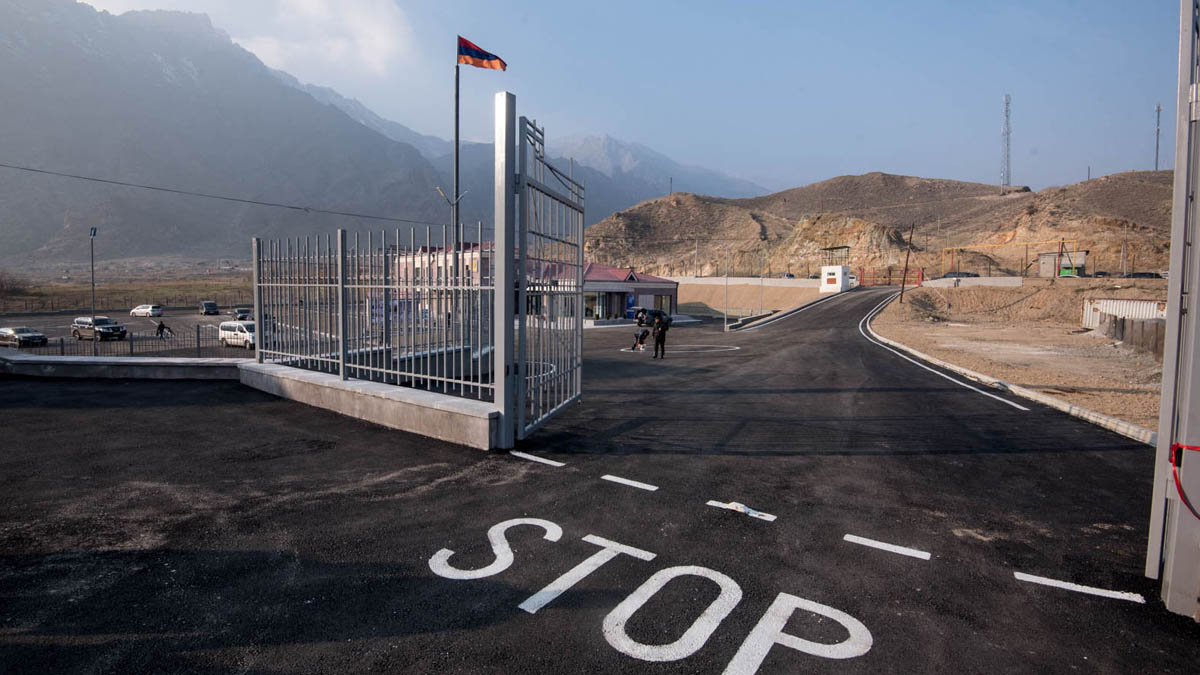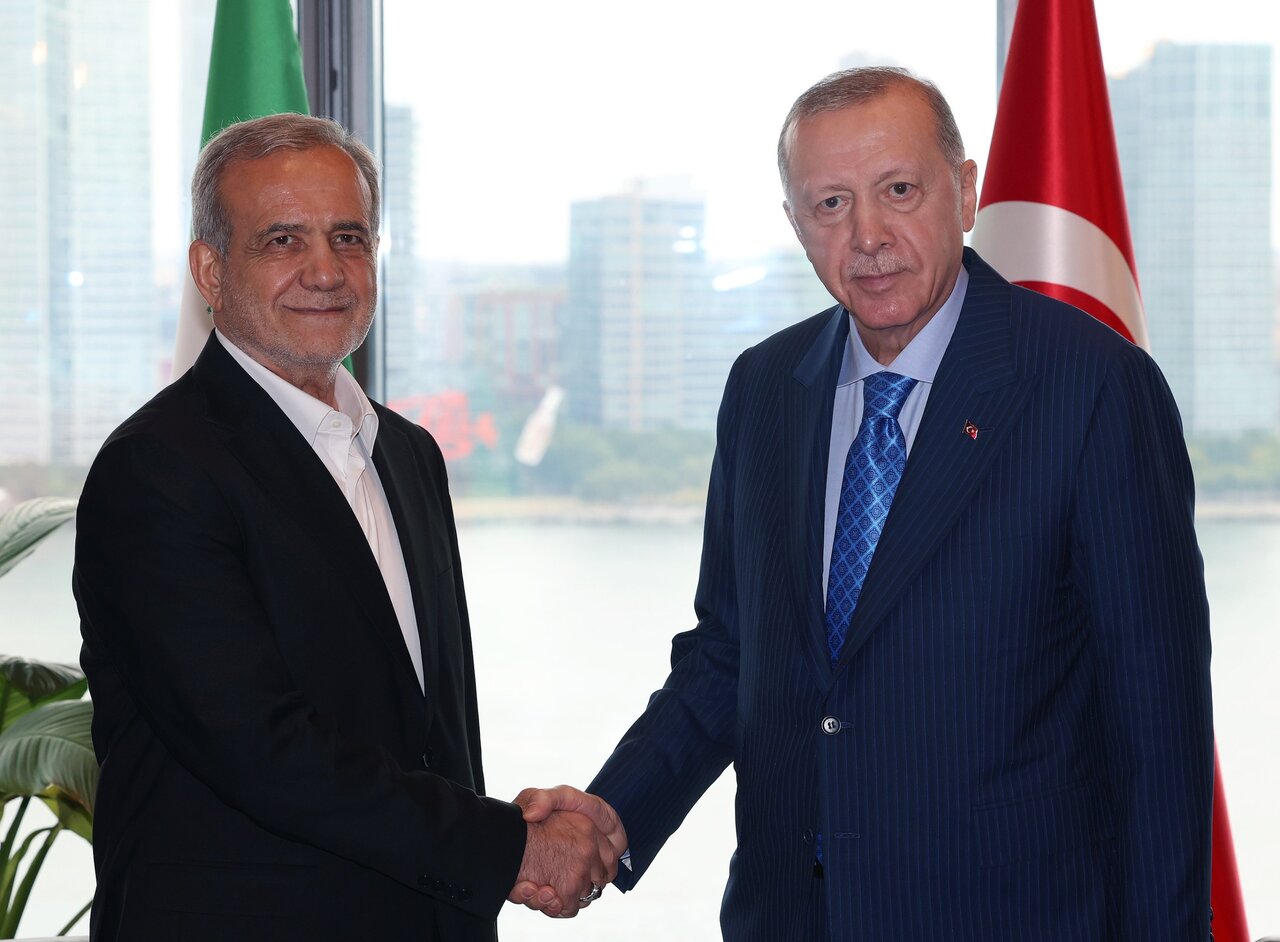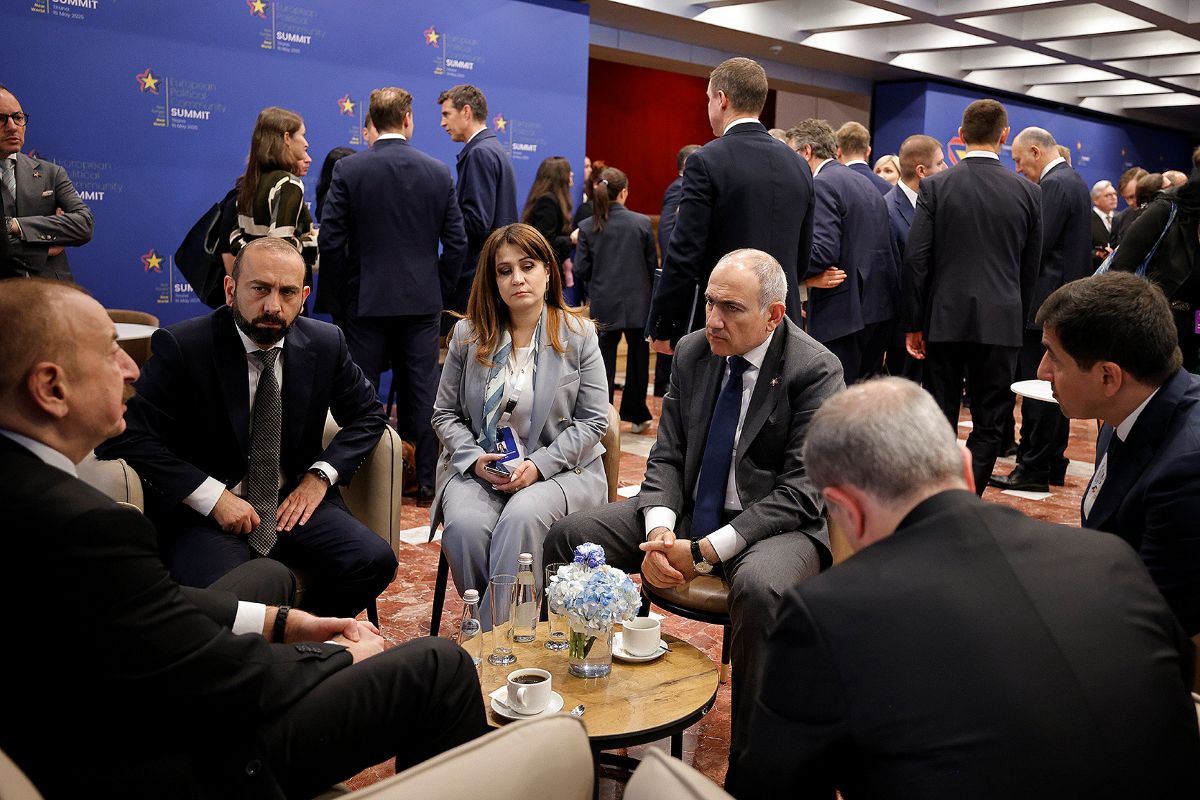“Baku weighing U.S. proposal”: Pashinyan-Aliyev talks in Abu Dhabi
Pashinyan-Aliyev talks in Abu Dhabi
Armenian-Azerbaijani talks in Abu Dhabi lasted more than five hours. The negotiations were held in several rounds—both in an expanded format, with the participation of delegations accompanying Pashinyan and Aliyev, and in a one-on-one meeting.
Following the talks, both sides released identical brief press statements, announcing an agreement to continue bilateral negotiations. The statements also noted that, highlighting progress on border delimitation, the leaders instructed their respective state commissions to continue practical work in this area.
However, according to Azerbaijan’s APA news agency, the parties also discussed issues related to unblocking roads and the initialing of a peace treaty.
Political analyst Robert Ghevondyan believes that signing a peace treaty in the near future is unlikely.
“This is due to several factors unrelated to Armenia; it mainly depends on Azerbaijan’s relations with various centres of power. However, the peace treaty could be initialed soon. That would mean only one thing: both sides would confirm with their signatures that they will not make any further changes to the already agreed text. In other words, they agree not to revisit these matters,” he told JAMnews.

Pashinyan arrived in the UAE with a 20-member delegation. On the Armenian side, the expanded talks included Foreign Minister Ararat Mirzoyan, Secretary of the Security Council Armen Grigoryan, Deputy Prime Minister and Head of Armenia’s Border Demarcation Commission Mher Grigoryan, and Deputy Speaker of Parliament and Special Representative on Armenian-Turkish Normalisation Ruben Rubinyan.
- Zangezur Corridor through Armenia back in the spotlight: US plan and Azerbaijan-Russia tensions
- Armenia’s foreign ministry hits back at resolutions from Organisation of Islamic Cooperation
- French consulate on Armenia’s southern border: Will it deter Baku from escalation?
The sides agreed to continue talks without mediators
The Armenian Foreign Ministry reported that Pashinyan and Aliyev discussed various aspects of the agenda for normalising interstate relations:
“It was confirmed that bilateral negotiations are the most effective format for addressing all issues related to the normalisation process. Based on this understanding, the parties agreed to continue result-oriented dialogue.”
The statement also noted that both sides intend to promote confidence-building between the two countries.
The previous meeting between the leaders of Armenia and Azerbaijan took place on May 16 in Tirana, on the sidelines of the European Political Community summit. Pashinyan and Aliyev discussed the peace treaty over coffee. No detailed information about that meeting was provided either—only that “the sides discussed the current situation and emphasised the importance of continuing efforts toward signing the document.”

The meeting in Abu Dhabi was preceded by discussions of a U.S. proposal
Citing diplomatic sources, the Carnegie Endowment reported that the administration of U.S. President Trump had proposed that Yerevan and Baku transfer control over regional transport routes to a private American company. The proposal concerns roads that are set to be unblocked.
Details of the proposal were not disclosed, but it was noted that the implementation of the agreements would be “guaranteed by American business and American interests.”
In response, Armenia’s Foreign Ministry stated that Armenia has been and remains committed to expanding regional connectivity but stressed:
“As before, Armenia’s vision for unblocking regional transport infrastructure is based on fundamental principles of sovereignty and national jurisdiction over communications, and does not imply any other approach.”
Azerbaijan is demanding that Armenia provide an extraterritorial corridor for land access to its Nakhchivan exclave. Armenian authorities have repeatedly stated over the past few years that they are ready to provide roads. However, they insist that the unblocking process must be based on four key principles: respect for the sovereignty and jurisdiction of the countries involved, reciprocity, and equality.
Several proposals for unblocking are under discussion
Deputy Foreign Minister Mnatsakan Safaryan stated today that outsourcing certain functions in the context of unblocking regional routes is acceptable for Armenia. However, he stressed that this process must fully align with the four principles that Yerevan consistently emphasises.
Safaryan also noted that, in reality, it is not only the American proposal being discussed—there are several others. However, he did not specify which countries had submitted these proposals. The diplomat stressed that these proposals “can be considered” if they are in line with Armenia’s interests and the principles outlined in the “Crossroads of Peace” project. This Armenian government initiative defines all potential routes and the terms under which they would operate.
Comment
According to political analyst Robert Ghevondyan, the meeting in Abu Dhabi was planned in parallel with Pashinyan’s visit to Turkey:
“The decision to organise the meeting was not made in Ankara. It is wrong to assume that the Pashinyan-Erdogan meeting influenced the arrangement of the Abu Dhabi talks. However, yes, during the Pashinyan-Erdogan and Aliyev-Erdogan meetings, there was an exchange of ideas and clarification of approaches. This may have had some impact on today’s meeting.”
The analyst does not consider it a coincidence that Armenia’s special representative for normalisation of relations with Turkey was included in the delegation that travelled to the UAE.
“Turkey’s approaches and its indirect influence on this process are quite evident,” he emphasised.
“The Pashinyan-Aliyev meeting was organised by the UAE, but on behalf of the United States. The UAE’s interest in our region is primarily economic. They are making fairly large investments here.
This does not mean that they initiated and carried out the process independently. It is obvious that these processes are being implemented taking into account the approaches of other interested parties, primarily the United States.”
Gevondyan assumes that the leaders of Armenia and Azerbaijan discussed issues related to the signing of a peace treaty, border demarcation, and the unblocking of roads during the meeting in Abu Dhabi.
Commenting on the deputy foreign minister’s statement about “various proposals”, he suggested that the sides discussed all these initiatives regarding unblocking. However, Gevondyan himself does not have information on which other countries, aside from the United States, presented proposals.
The political analyst explains that outsourcing functions implies that a third party will carry out certain activities in Armenia, gain benefits from it, and pay Armenia a share of the profit. At the same time, he stresses:
“There can be no extraterritorial component in the unblocking of roads. This is Armenia’s clear position. I think Armenia will never back down from this stance.”
Regarding whether the US proposal on lifting the blockade is acceptable for Baku, Gevondyan said:
“This initiative may suit the Azerbaijani side. Not only this meeting, but also the tension in Russian-Azerbaijani relations suggests that Baku is considering it. Most likely, Russia has certain concerns about this.”
The analyst is convinced that in exchange for unblocking communications and signing a peace agreement, Aliyev wants to obtain additional benefits:
“These may include expectations of investments in Nagorno-Karabakh from sources that would eliminate any return to the Artsakh issue. It may also involve approval for transferring power to his son and securing the necessary international legitimisation for that.
If Aliyev receives a favourable offer on any of the points I mentioned, he may well forget about dissolving the Minsk Group or amending Armenia’s constitution [Baku’s preconditions for signing a peace treaty].”
Follow us – Twitter | Facebook | Instagram
Pashinyan-Aliyev talks in Abu Dhabi






















